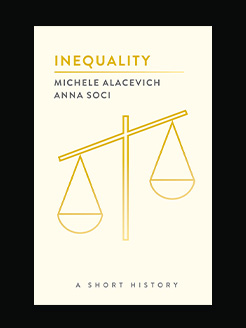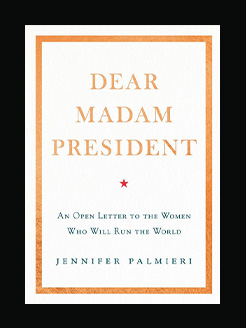Published in 2018
288 pages
Saadia Zahidi is a Managing Director at the World Economic Forum and Head of the Forum’s Centre for the New Economy and Society. Her team works with leaders from business, government, civil society and academia to understand and shape the new economy, advance competitiveness, drive social mobility and inclusion, close skills gaps, prepare for the future of work and foster gender equality and diversity.
Saadia founded and co-authors the Forum’s Future of Jobs Report, Global Gender Gap Report, and Human Capital Report. Her book, Fifty Million Rising, charts the rise of working women in the Muslim world and is longlisted for the FT/Mckinsey Book of the Year 2018. She has been selected as one of the BBC’s 100 Women and won the inaugural FT/Mckinsey Bracken Bower Prize for prospective authors under 35.
She holds a BA in Economics from Smith College, an MPhil in International Economics from the Graduate Institute of Geneva and an MPA from the Harvard Kennedy School. Her interests include the future of work, the impact of technology on employment, education and skills, income inequality and using big data for public good.
What is this book about?
There is a quiet revolution that is radically reshaping the Muslim world: 50 million women have entered the workforce and are upending their countries’ economies and societies.
Across the Muslim world, ever greater numbers of women are going to work. In the span of just over a decade, millions have joined the workforce, giving them more earning and purchasing power and greater autonomy.
In Fifty Million Rising, award-winning economist Saadia Zahidi illuminates this discreet but momentous revolution through the stories of the remarkable women who are at the forefront of this shift–a McDonald’s worker in Pakistan who has climbed the ranks to manager; the founder of an online modest fashion startup in Indonesia; a widow in Cairo who runs a catering business with her daughter, against her son’s wishes; and an executive in a Saudi corporation who is altering the culture of her workplace; among many others. These women are challenging familial and social conventions, as well as compelling businesses to cater to women as both workers and consumers. More importantly, they are gaining the economic power that will upend entrenched cultural norms, re-shape how women are viewed in the Muslim world and elsewhere, and change the mindset of the next generation.
Inspiring and deeply reported, Fifty Million Rising is a uniquely insightful portrait of a seismic shift with global significance, as Muslim women worldwide claim a seat at the table.







